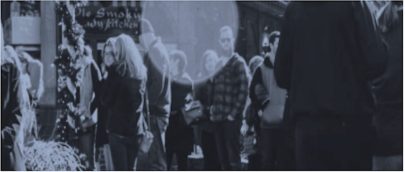Rebuild Local News supports Colorado bill to establish local advertising credit
Steve Waldman, Rebuild Local News Coalition chair, testified virtually on March 10 in support of House Bill 22-1121 , which would create a tax credit for local small businesses to advertise in local news outlets. The legislation is similar to the advertising credit originally proposed in the Local Journalism Sustainability Act. It passed the House Business Affairs and Labor Committee 8-2.
Democrat Rep. Lisa Cutter introduced the bill earlier this year. Earlier version of the bill included an advertising allocation similar to the one passed in New York City as well as a local tax credit for subscribers. However, the provisions were dropped due to budget considerations.
In his testimony, Waldman said Rebuild Local News “particularly appreciate(s) that this is a way of helping local news without having the government pick and choose favorite outlets. Instead, the tax credit goes to Colorado small businesses, which, in turn, decide which local news source best fits their needs and, we would hope, has built up trust from the community through years of fair journalism.” He also spoke about the potential for this bill to become a nonpartisan model for other states and even the federal government to learn from.
Civil society organizations also testified in favor of the bill, including the Colorado League of Women Voters and Colorado Common Core, in addition to members of the Colorado press. Several lawmakers also spoke in favor of supporting the local press, most notably Colorado Rep. Tom Sullivan, whose son, Alex, was one of the 12 people killed when a gunman opened fire in a theater in Aurora, Colorado in 2012. Rep. Sullivan said he’s appeared on national and international television programs. He’s been quoted in the Washington Post and other high profile, national publications.
“Through all of that, the people who have really understood, who really get what happened that day & how the people in my community were impacted, have been the Aurora Sentinel . And that’s because they’re right down the street. They drive by that theater every day,” Rep. Sullivan said. “And if they weren’t around, people wouldn’t understand what we go through each and every day. So it is imperative that our local journalists and our local publications have the ability to continue to tell the stories of the people in their communities”
He gave his “overwhelming” support of the bill. Next, HB 22-1121 will go before the House Committee on Finance.
March 10, 2022
Statement of Steven Waldman, chair of the Rebuild Local News Coalition, and President and co-founder of Report for America
Rebuild Local News is a coalition of 17 national organizations committed to strengthening local news. The coalition’s groups represent more than 3,000 newsrooms, and includes publishers, labor unions, rural and urban, mainstream and ethnic, publications small, medium and large.
The Rebuild Local News Coalition strongly supports HB 22-1121. This smart bill would solve several problems at once – helping small businesses get back on their feet and helping save local news from destruction.
I’d like to provide some national context about the local news part of that equation. Since 2000, there has been an 81% drop in newspaper advertising revenue. More than 1,800 communities have no local news source and thousands more have “ghost newspapers,” which barely cover local issues.
Newsrooms in Colorado are doing their best, but with far fewer local reporters. Nationally, there has been a 57 percent drop in the number of reporters since 2004. But the situation is even more dire than that statistic suggests. As the number of reporters has dropped, the overall population has increased – as has the importance of state and local government. The proportion of reporters per dollar spent by state or local governments has decreased by 67 percent.
Colorado has seen this contraction first hand as hedge funds have gutted the Denver Post. But the shortage has also been particularly severe in rural areas as other testimonies illustrate.
This is bad for Colorado communities. Studies have shown that communities without local news have less civic engagement, lower voter turnouts, more waste, more corruption and even higher pollution without watchdogs to monitor the industries in their own backyards. Towns with less local news even have lower bond ratings and higher taxes (because municipal governments tend to get sloppier when no one is watching). Polarization and misinformation grows.
We’re happy to see local news outlets, funders, civic organizations and businesses support this bill. We particularly appreciate that this is a way of helping local news without having the government pick and choose favorite outlets. Instead, the tax credit goes to Colorado small businesses, which, in turn, decide which local news source best fits their needs and, we would hope, has built up trust from the community through years of fair journalism. We also believe that this bill could act as a model for other states and the United States Congress.
We recommend that the committee adopt the amended language. The changes reflect many of the lessons we at Rebuild Local News learned at the national level while advocating for similar policies. The amendments to HB 22-1121 take First-Amendment friendly steps to ensuring that credible sources of local information will benefit from this bill. If adopted, this bill would surely benefit local economies, local newsrooms, local communities and ultimately democracy in Colorado.
The Rebuild Local News Coalition includes:
The National Newspaper Association, Institute for Nonprofit News, National Newspaper Publishers Association, America’s Newspapers, The News Guild, Local Independent Online News, National Association of Hispanic Publications, National Federation of Community Broadcasters, Association of Alternative Newsmedia, Report for America / The GroundTruth Project, American Journalism Project, Lenfest Institute, Solutions Journalism Network, Local News Consortium, Chalkbeat, PEN America, Public Knowledge




